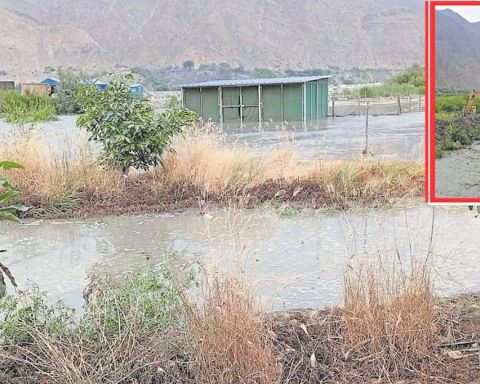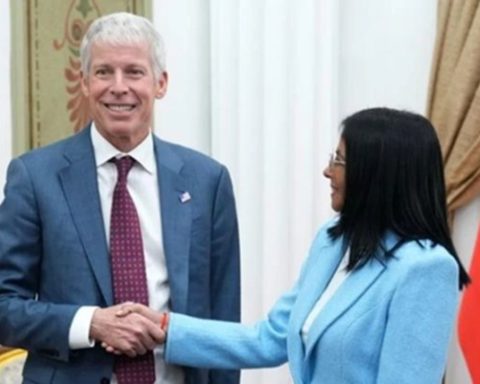During the first weeks of January, more than 50 heads of
State or government, as well as 600 leaders of the main companies on the planet gathered
in Davos, as part of a new meeting of the World Economic Forum. big themes
were on the discussion tables: prop up a faltering global economy, boost
effective actions against climate change, social inclusion and the fight against poverty. AND
The advances have been relative to the global emergency.
Meanwhile, the youth that is beginning to join the productive economy and who, with
security, she will have to deal with the greatest effects of the global recession, she is ready to
assume the challenge that the future poses. According to a Dell study of more than 15,000
young adults (between 18 and 26 years), almost half (47%) would be willing to bear
short-term economic constraints, such as lower GDP growth in their countries, if the
Policy makers invest in a long-term strategy that promotes growth
sustainable.
These indicators are a call to action for leadership in public institutions and
organizations all over the planet. And it is that, for the young people of Generation Z, the
Technology is an enabler of social change towards economic growth, better
provision of health and education services, and more inclusive and sustainable environments. This
It was clear in the opinion of the more than 15,000 young people consulted, with the participation of
representatives of Brazil and Mexico, for whom the challenges of the future have priorities
clear:
Make sustainability a mandate for society and not a late reaction.
Have a variety of options and flexible work modalities.
Improve education in digital skills.
Closing the digital divide by democratizing access to digital services.
Greater commitment of the institutions to provide more transparency in the
investments, and decision-making, to increase security and confidence.
The political class in question
Young people are quite critical when it comes to assessing the management of government institutions
and of the political class in the face of these challenges of the future. In this sense, the confidence of the
Generation Z in which public sector investments will generate a flourishing economy
within 10 years it is divided: a third of the world sample (32%) has little or
Internal Use – Confidential Internal Use – Confidential
no confidence, while 38% are undecided and the remaining 29% express a
high or full confidence.
These trends show nuances according to the regions of the world. While Brazil is the
country with little or no trust in government institutions and politicians on the part of
youth (49%); For their part, young people from Singapore (56%) and Korea (41%) expressed
high or total confidence in their political and governmental institutions.
For Generation Z, global economic recovery in a digital future also requires a
commitment of public institutions to cybersecurity. More than half (56%) of the
consulted, considers that there is a need for solid legislation in their countries, and for a
Increased investment in cybersecurity to protect national infrastructures and ensure
that private companies meet strict standards. For this to happen and for
improve trust in governments, 38% of respondents want the sectors
public and private work together and take responsibility for fulfilling their commitments.
Facing the digital and knowledge gaps
When the topic is education, in this consultation that we did at Dell, more than two fifths
Parties (44%) noted that the school only taught them very basic computer skills, and
one in eight (12%) did not receive any education in technology or digital skills.
Over a third (37%) say the school did not prepare them with technology skills
necessary for your career.
Reducing the gap in technological knowledge and the digital gap should be
first priority of government action for Latin American youth. In Mexico and
Brazil, cited investment in education as the most important (2 out of 3 young people from
Brazil, for example) above health services, the reduction of the national debt, the
digital inclusion or cybersecurity.
To help bridge the digital skills gap, a third (34%) of respondents
suggested making technology courses at all levels of education more
interesting and widely available. A quarter (26%) believe that training courses
technology should be compulsory in education programs up to the age of 16, which is
that could encourage young people to pursue technology-driven careers.
Generation Z also sees device access and connectivity for groups
disadvantaged (33%) and connectivity in rural areas (24%) are the focus areas to
prevail to drive change that takes advantage of rising trends such as
telecommuting. Along these lines, more than half (55%) of Generation Z believe that work
flexible and remote is an important consideration when choosing an employer.
In the face of a digital and sustainable future, and to support economic growth, the youth of
this generation coincide in prioritizing the improvement of health services (21%), investment in
education to reduce the skills gap (11%) and investment in infrastructure
sustainable / green (11%). It is clear that Generation Z sees technology as fundamental
for your future prosperity. At Dell, it’s part of our reason for being to put the
Technology at the service of human progress.
In these challenging times, it is up to us, the leading providers of
technology, governments and the public sector, work together and leverage that inclusive future and
sustainability to which these new generations of digital natives aspire, improving the quality
Internal Use – Confidential Internal Use – Confidential
of public services and opening up learning opportunities so that they can take advantage of
greatest advantage of technological transformation.
Luis Goncalves, President of Dell Technologies in Latin America











